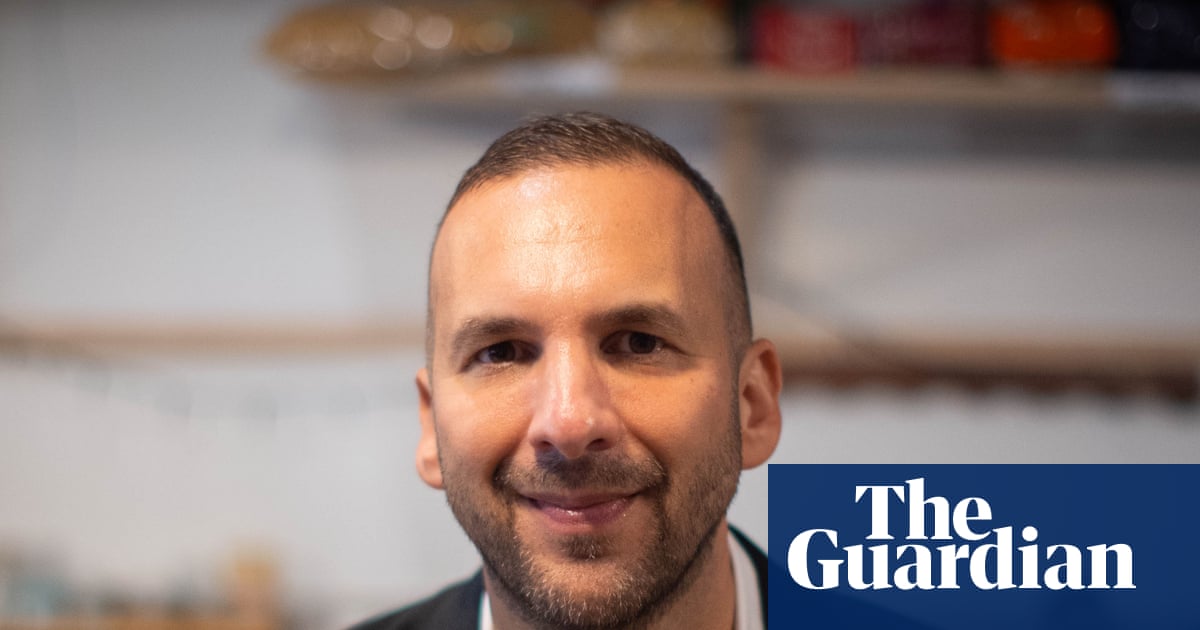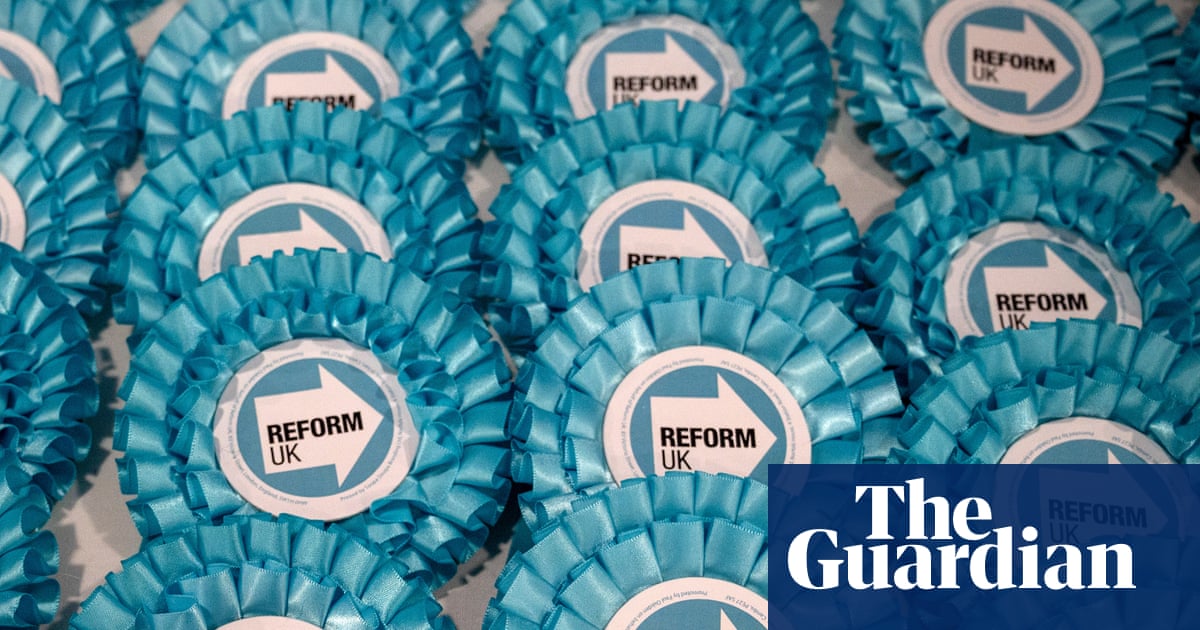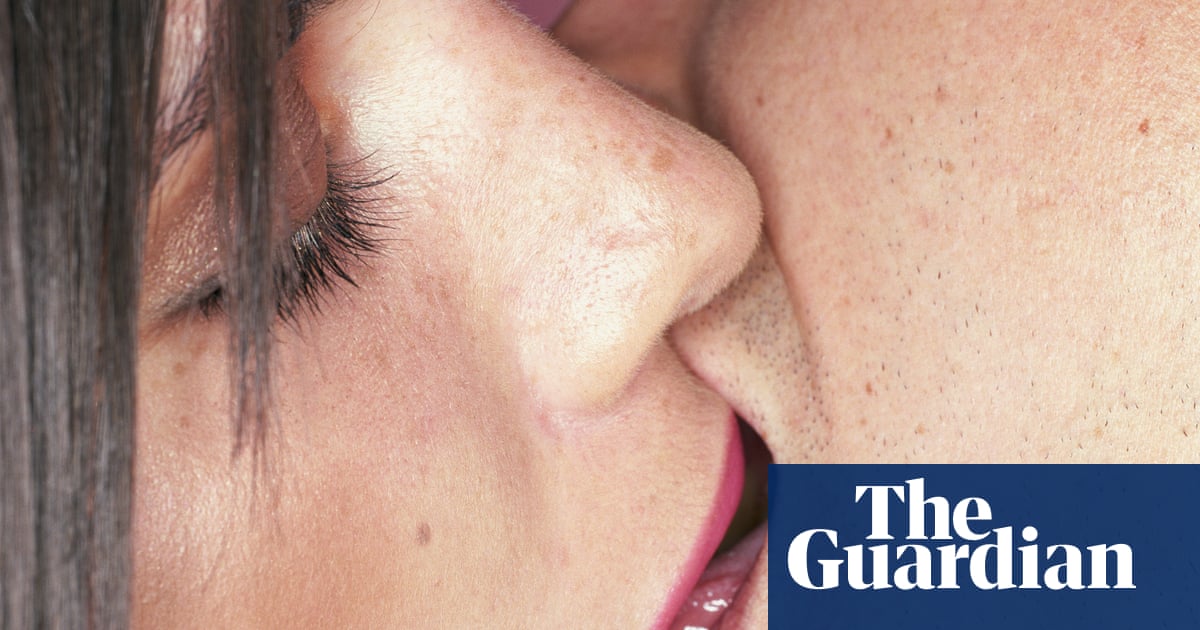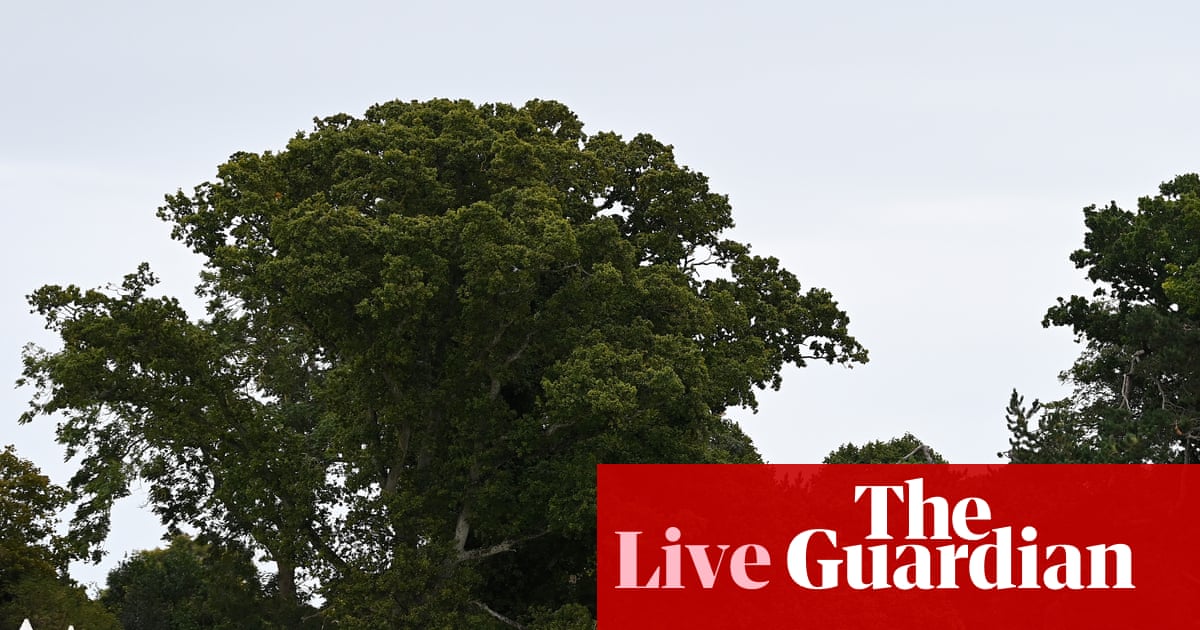The last day of Jools Sweeney’s life, 13 April 2022, was sunny and fun-filled. It was the Easter holidays and Jools, who was 14, had spent the day with a bunch of friends in Cheltenham, where he lived. They played football. They walked through fields to a lake and tried to reach the middle in a small wooden boat. Back home, he and a friend had pizza for dinner, then got the fire pit going and toasted marshmallows. At 8.46pm, his friend left, leaving Jools, an only child, on his own. Their laughter as they said goodbye was recorded on the Ring doorbell.
Jools’s mum, Ellen Roome, had been out all day but she had been in constant contact with her son. At 9.56pm she rang him to say she would be back soon – she rang three times but there was no answer. When she arrived home, less than 20 minutes later, with her then-partner, she went straight to Jools’s room, just to say hello, and for a moment, made no sense of what she saw. “I said: ‘What are you doing?’” says Roome. “I remember thinking he was messing around. Then I screamed and screamed.” Roome’s partner, a pilot trained in first aid, rushed upstairs and delivered CPR. The house filled with firefighters, paramedics, police officers, Jools’s dad who lived close by, and Roome’s dad, too. Jools was defibrillated. Eventually, a detective took the family aside and said they needed to stop treatment. “We were told that even if they brought him back, he’d be brain dead,” says Roome.
She is still struggling to comprehend it. “What just happened? You can’t take it in. This made no sense at all. He was a really happy, fun-loving, popular kid … there’d been no sign of mental health issues – nothing.”
Her first thought that night was that Jools had acted under the influence. Had he taken drugs earlier? She rang the parents of his friend who insisted no, they hadn’t – which the toxicology report later confirmed. Jools had no drugs or alcohol in his body. “Then I was absolutely paranoid, I thought someone must have done this to him. I thought there must be somebody else in the house,” says Roome. But that night, a detective assured them that a scene of crime investigation showed no sign of an intruder or a struggle. Police believed this was something her son had done to himself.
Police took Jools’s phone and iPad, and the next day, they picked up his computer. Nothing was done with them though: Roome was later told that the forensics machine in Gloucester wasn’t working. Just days before Jools’s death, the case of 12-year-old Archie Battersbee had begun to make headlines. Archie had suffered a catastrophic brain injury that was ultimately fatal. His mother had voiced her belief that he had killed himself by accident, while taking part in an online “blackout” challenge. “I asked police if this could have been the same thing, a blackout challenge. I’ll never forget their answer,” says Roome. “They said: ‘It could be but we can’t prove it.’” (Meanwhile, Jools’s phone, iPad and computer, which could surely have given them a better answer, remained untouched.) “If it had been a murder, I think there would have been more investigation,” says Roome. It felt as if, “the police response was: ‘Well, he’s taken his own life … so let’s move on.’”
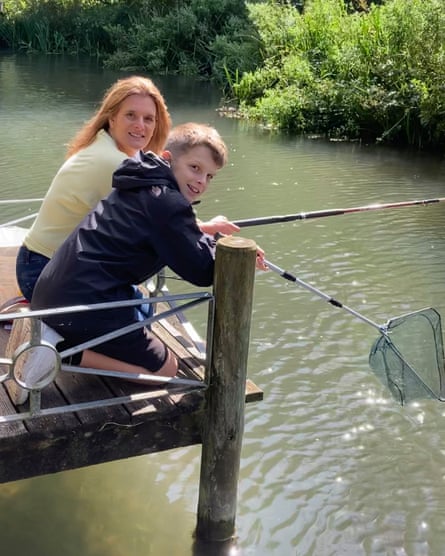
But how could she? Instead, Roome has spent the last two years searching for the truth, trying to understand something utterly incomprehensible – and this means fighting for the right to see her son’s social media data.
The Bereaved Families for Online Safety group, of which Roome is now a member, has campaigned for legislative change through the Online Safety Act and the data (use and access) bill. Under these, technology companies will be required to provide a user’s app history if requested by a coroner. The agonising experience of Molly Russell’s family showed the need for this. After 14-year-old Molly killed herself, they fought for five years to access her social media, eventually uncovering horrifying content that the coroner believed played a significant part in her death.
For Roome, the legislative change is welcome but nowhere near enough. She wants a national system in place whereby a coroner notified of a child’s death immediately applies to Ofcom to send out an order to social media companies to preserve the child’s data. “It should be as standard as a postmortem or a toxicology test,” says Roome. “It will show who they were talking to, what was on their mind, the content they were seeking and the content that was being offered up. A young person’s entire life is on their phone.”
At present, there seems to be no system at all. “I’ve become close to so many bereaved parents and we all have such different experiences,” she says. “Ros Dowey’s son Murray took his own life and within two weeks, Police Scotland had got into his phone, established that he was a victim of sextortion and were tracking the people blackmailing him. Jools’s phone just sat in somebody’s desk. In the case of Mia Janin who was bullied and killed herself at 14, the police lost the phone and the sim card [they were later recovered]. How can it be so different? Shocked, numb parents are saying, ‘What happened to our beautiful child?’ and there’s such a lack of giving a damn.”
For the first year after Jools’s death, Roome had none of this fight in her. “I was struggling to even breathe,” she says. “I collapsed into just about existing and I was in denial. Three years down the line, I still expect him to walk in the door sometimes.” Instead, Roome assumed the inquest would deliver all the answers. “I expected to go in and be told: ‘This is what happened and why.’” Instead, they learned nothing. “It was just me, Jools’s dad, my partner at the time, and the coroner – and it was over in half an hour,” says Roome. They were presented with a folder containing statements from various people, including Jools’s friends, none of whom had seen any sign of mental health problems. (His friends believe the blackout challenge is the only answer that makes sense.) “The coroner said: ‘I can’t be certain he was in a suicidal mood,’” says Roome. “So Jools’s death certificate is just a narrative description of how he took his life. We walked out, thinking: ‘Now what?’”
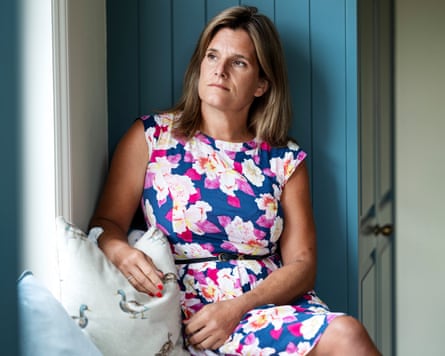
Returning to her old life wasn’t possible. Roome ran a finance company. “I remember trying to go back to work – I had staff who were reliant on me – and hearing people complain about the coffee. I thought: ‘I’ve got to get out.’ I decided to sell the business and then look for answers and that’s exactly what I did. I sold it in March 2024. Then I went back to being a fighter.”
Her first step was to contact the social media companies to request Jools’s data. “Even contacting them was hard and took a lot of time,” she says. Instagram answered: “With regard to your son’s messages on our services, we are not able to provide private messages without a valid legal order.” “TikTok arranged a Zoom meeting where I was told that they ‘might’ have deleted the data. They didn’t say that they’d looked and they had deleted it, only that they ‘might’ have,” says Roome. “The line they give you is that, without a court order, they’re not releasing anything.”
Next, Roome began lobbying and meeting MPs. Her petition to give parents the right to access their child’s social media accounts gained more than 120,000 signatures in nine days and was debated in parliament. At that debate, MP Caroline Voaden described a meeting with senior representatives of all the social media companies and hearing their “pathetic excuses” for not releasing Jools’s data. “They said they would be fined for releasing the data. By whom? Who is going to press charges in their right mind?,” asked Voaden. “It’s a pathetic attempt to avoid the potential bad publicity that will follow if it becomes clear that Jools’s short life ended after taking part in a challenge. It’s about protecting their reputation. I believe it’s about the accountants who fear the lawsuits.” Roome agrees: “Who are they protecting? Surely, they should be saying: ‘Here you are, bereaved parents, I hope you get some answers.’ I believe they’re protecting themselves.”’
The Guardian also contacted Instagram. A spokesperson apologised for the delay in responding to Roome, which it said was the result of an unstaffed email address, something it has now rectified. Instagram has created a new facility that enables parents to request and download their child’s account history, the posts they are engaging with and the accounts they are following. They have offered to help Roome use this.
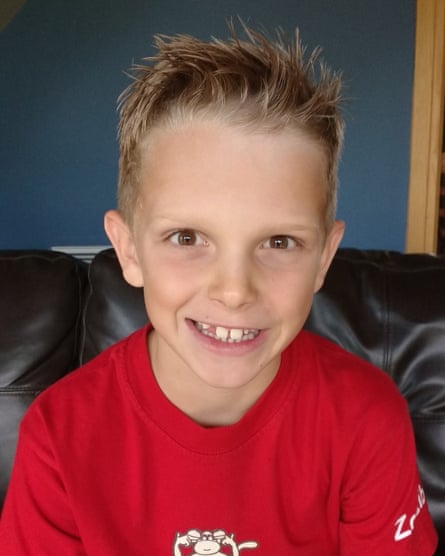
When approached by the Guardian, TikTok declined to give a statement, but did say that it is not the case that it is trying to prevent Roome from obtaining answers. According to TikTok, it is legally required to delete personal data unless, for example, it receives a valid request from law enforcement to preserve it. By 2024, when it was contacted about Jools’s account, it was no longer available.
Roome doesn’t believe this. She has Jools’s phone back now, she has worked out his pin and paid £20,000 for a forensic examination. Though she can see Jools’s TikTok account, much of the content is faded out and inaccessible – Roome doesn’t know why – but each inaccessible video has an ID number. She is applying to the high court to request a fresh inquest so that a coroner can apply for Jools’s data. She is also suing TikTok for her son’s alleged wrongful death, alongside three other parents who believe their children died while taking part in an online blackout challenge. One of the children, Isaac Kenevan, 13, had three videos stored on his phone (one with a TikTok logo) showing Isaac making himself pass out, then recovering, laughing. There are other factors related to the way the children died that have led their parents to suspect it was not deliberate. “God forbid anyone heard our conversations: we’ve talked in graphic detail and pieced together similarities,” says Roome. “In the lawsuit, we only need to show a 50% chance that this could have been the result of social media in order to progress … then they’d have to release the data.”
According to TikTok, the blackout challenge has been banned from its platform since 2020 and it has found no evidence of it trending. Roome disputes this and says she has been contacted by parents who believe their children have since participated in it, some as recently as this month.
For now, this fight is Roome’s life. “I’m haemorrhaging money every month and at some point, I’ll have to get a full-time job,” she says. She also has to leave her house, which she bought with her partner, as they’ve now separated. “I’m not ready to go yet, I’m not ready to pack up Jools’s stuff,” she says. “His room is exactly the same. I washed all the clothes in his laundry basket and put them back in his drawer. I wash his bedsheets now and again, too – even though that feels weird when I know he’s never going to sleep in his bed again.” Twice a year – on the anniversary of Jools’s death and his birthday in July – that room fills up with his friends. “I love it,” she says. “There’s this pile of shoes at the bottom of the stairs. Last year they showed up in cars – they were all learning to drive. I found that particularly hard. This July, Jools would be 18. One of the girls is bringing a lemon drizzle cake because that was his favourite.”
There may never be answers. “Since the beginning, I’ve said that we don’t know if social media was involved,” says Roome, “but it’s the only thing we haven’t checked. If I get to the very end of all this, and we’ve checked and we’ve seen and we still don’t know, then maybe I’ll have to accept it.” There’s a pause, and then she adds: “But if we get to the end, and we find that social media did play a part, I will not let them get away with it. I’ve got absolutely nothing left to lose.”

 3 months ago
72
3 months ago
72
